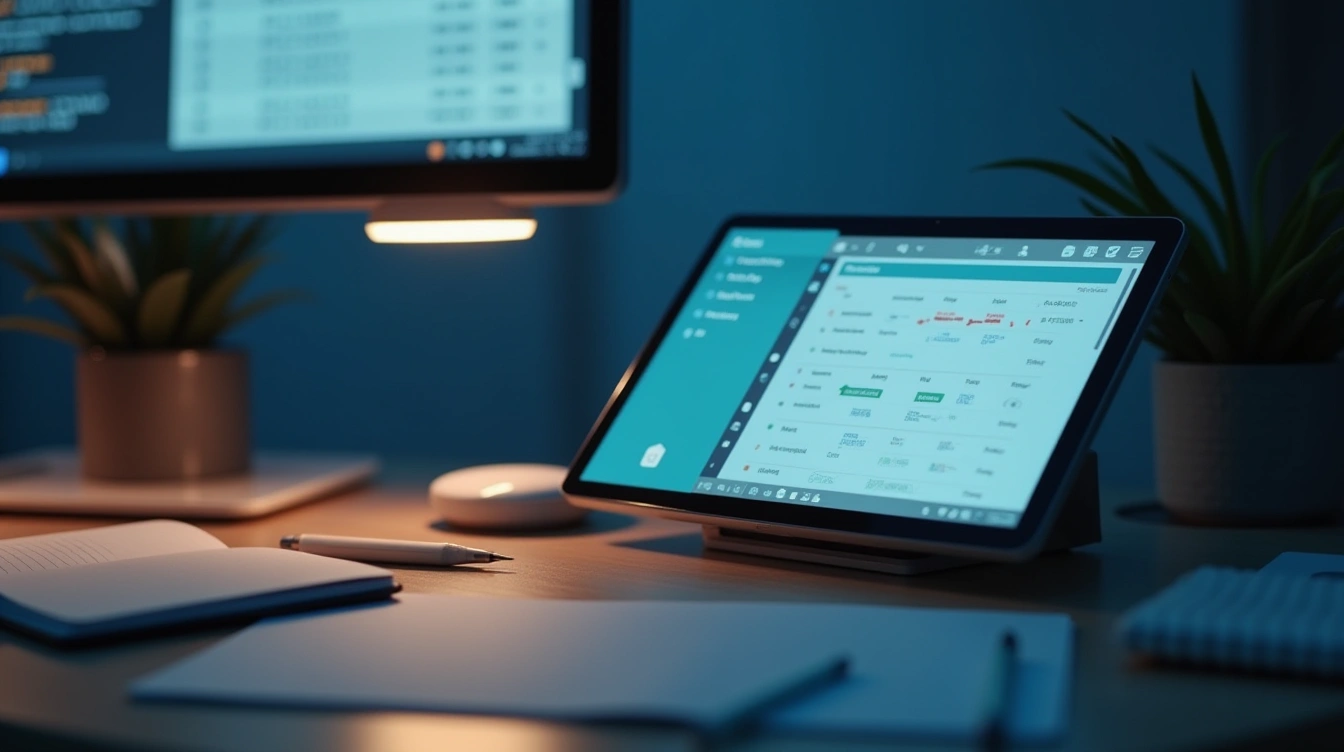Managing daily tasks often feels overwhelming. An AI personal assistant can streamline your schedule, set reminders, and handle routine activities—freeing up time for what truly matters. Understanding how these smart tools work and choosing the right one can transform your productivity and simplify your personal and professional life.
Understanding AI Personal Assistants and Their Functionality
Improve your business operations with ai personal assistant leverages advanced natural language processing and machine learning to streamline daily tasks. These assistants understand spoken or written commands, enabling seamless task management.
Have you seen this : Exploring the future of blockchain in uk computing: innovations and impacts ahead
AI personal assistants typically handle scheduling, reminders, email management, and communication coordination. For example, Eva, an AI executive assistant, efficiently filters emails, drafts responses, and manages calendars, saving users up to 2 hours daily.
By automating routine activities, these assistants enhance productivity and reduce stress. They adapt to user preferences, learning from interactions to better categorize emails or suggest optimal meeting times. Integration with various platforms, from Microsoft Outlook to smart home devices, broadens their functionality.
Also to discover : How emerging trends are transforming the future landscape of computing in the uk
Market insights reveal a growing demand for virtual assistants that facilitate task automation, enhance team collaboration, and support remote work. Eva’s capabilities exemplify how these tools can transform organizational efficiency and individual productivity.
Key Features and Capabilities of AI Personal Assistants
Scheduling and Task Automation
AI personal assistant technology transforms daily organization through AI-driven scheduling apps and digital task management. Advanced tools such as intelligent calendar management leverage real-time AI task updates for seamless calendar coordination and automated rescheduling. This means meetings adjust automatically based on user priorities and unexpected overlaps, reducing manual input. Major platforms excel at AI task prioritization, ensuring urgent responsibilities surface first and secondary action items are queued logically. These task automation tools do more than set reminders; they optimize focus blocks, send AI-powered reminders and alerts, and reschedule unfinished work instantly, boosting overall productivity.
Communication and Note Management
AI assistant software solutions bring voice-activated assistant features and robust natural language processing in assistants to daily tasks. AI assistants for email management can prioritize or draft messages based on urgency or category. Voice recognition accuracy enables straightforward voice-activated notes, dictation, or even real-time meeting transcription using the latest speech-to-text AI capabilities. AI-driven note-taking apps allow efficient information retrieval, with digital task management systems keeping notes, audio, and documents organized for instant access. These virtual assistant technology advances, especially integration with mobile and desktop apps, mean you receive timely updates and clear communication, whether for business or personal use.
Comparing Main AI Personal Assistants for Home and Work Use
Professional Productivity Solutions
Motion, Reclaim, and Clockwise lead the field in AI-driven scheduling apps for professional productivity. Motion stands out for integrating digital task management and intelligent calendar management, with robust AI task prioritization and project planning. Its virtual assistant technology automatically allocates focus time, manages deadlines, and balances competing priorities, minimizing manual input. Team collaboration is handled through transparent project dashboards and shared task lists, making it a strong virtual assistant for business use.
Reclaim excels at task automation tools and AI-powered reminders and alerts, especially smart meeting scheduling and automatic habit tracking. It supports integration with existing task automation tools, vital for mid-to-large teams.
Clockwise specializes in optimizing meeting schedules with voice-activated assistant features and real-time AI task updates via chat, ensuring uninterrupted deep work. However, limitations include fewer AI-driven project management tools and a sync delay.
Home Automation and Personal Convenience
Alexa’s exceptional AI assistant software solutions shine in automating home routines and device management. Voice-activated assistant features let users adjust settings on demand, while smart device integration and AI assistant voice recognition accuracy ensure effortless control.
Siri offers robust user data protection in AI assistants and works best with Apple’s ecosystem. Google Assistant’s natural language processing in assistants enables seamless interactions, advanced multi-platform compatibility, and supports a broad scope of smart home gadgets.
Market Trends and Technology Innovation in AI Personal Assistants
Precision and recall scores for recent virtual assistant technology advances are notably high, reflecting improved performance and higher adoption across industries. AI-driven scheduling apps have fueled this growth, with emerging AI assistant startups offering smarter, more adaptive solutions for digital task management and real-time AI task updates. The expansion of AI assistant software solutions now allows users to delegate complex routines, manage priorities, and receive AI-powered reminders and alerts without constant input.
The proliferation of free AI assistant applications and SaaS AI assistant models has increased accessibility for individuals and enterprises, empowering more people to realize the benefits of AI in personal tasks. Another crucial trend is multi-platform compatibility, enabling a virtual assistant for business use and integration with various digital task management and AI personal assistant mobile apps. Intelligent calendar management and AI task prioritization have reached new levels, with platforms synchronizing schedules, preferences, and workflows across devices.
Personalized AI assistant learning, voice-activated assistant features, and AI assistant customization options are becoming standard, alongside future innovations like emotion recognition and virtual assistant AI for small business. As AI-powered virtual meeting assistants, AI-based virtual receptionist features, and natural language processing in assistants improve, the best AI apps for productivity will continue to transform how users approach work and daily life.
Practical Guidance for Adopting AI Personal Assistants
To select an AI personal assistant that truly elevates your productivity, apply SQuAD methods: assess platforms by matching your needs to virtual assistant technology, AI-driven scheduling apps, and digital task management. Prioritize ease of onboarding, robust calendar integration, and trusted AI assistant software solutions. Intelligent calendar management, voice-activated assistant features, and AI-powered reminders and alerts should be central in your evaluation, as they reflect real-world impact on daily productivity.
During setup, link your work and personal calendars for seamless intelligent calendar management and enable voice recognition for AI assistant mobile apps. Scripting workflows in AI assistant software solutions, plus customizing avatar and notification preferences, can personalize your experience. Regularly update privacy controls to maintain secure virtual assistant technology operation, especially for business or remote contexts.
Productivity optimization comes from harnessing AI task prioritization and real-time AI task updates. Use data-driven dashboards in AI-driven scheduling apps to identify patterns in your efficiency. Tweak digital task management logic for improved automation. For troubleshooting, revisit onboarding guides and leverage AI assistant troubleshooting tips within your chosen AI assistant software solutions to address recurrent glitches or performance lags.
Cost structures vary: most top AI assistant platforms provide free AI assistant applications with optional paid tiers. Frequent review of subscription benefits and periodic ROI measurement—factoring time saved and workflow improvements—will clarify long-term benefits of AI in personal tasks and justify continued adoption.
Final Insights and Recommendations
For those seeking the best AI personal assistant platforms—whether for business or home—virtual assistant technology has advanced to provide a wide range of specialized features. Using the SQuAD approach: For maximizing work productivity, Motion excels in intelligent calendar management, AI-driven scheduling apps, and comprehensive digital task management. It combines key benefits of AI in personal tasks by integrating calendars, automating prioritization, and providing real-time AI task updates, which enhances team collaboration and overall effectiveness.
In home environments, Alexa leads because of seamless AI personal assistant integration with smart devices, voice-activated assistant features, and routine automation. If privacy is a dominant priority, Siri remains a strong contender thanks to its secure user data protection in AI assistants. Google Assistant stands out for natural language processing in assistants and voice recognition accuracy, making conversations more fluid and intuitive.
For business users, Eva (from Marblism) demonstrates how AI-driven note-taking apps and intelligent inbox management directly improve productivity. Features like customizable AI assistant software solutions, tailored reminders, and speech-to-text AI capabilities amplify organizational efficiency.
Testing free AI assistant applications and demos is encouraged, allowing users to assess virtual assistant customization options, compare top AI assistant platforms, and choose the AI personal assistant software perfectly aligned with their routine and business needs.



